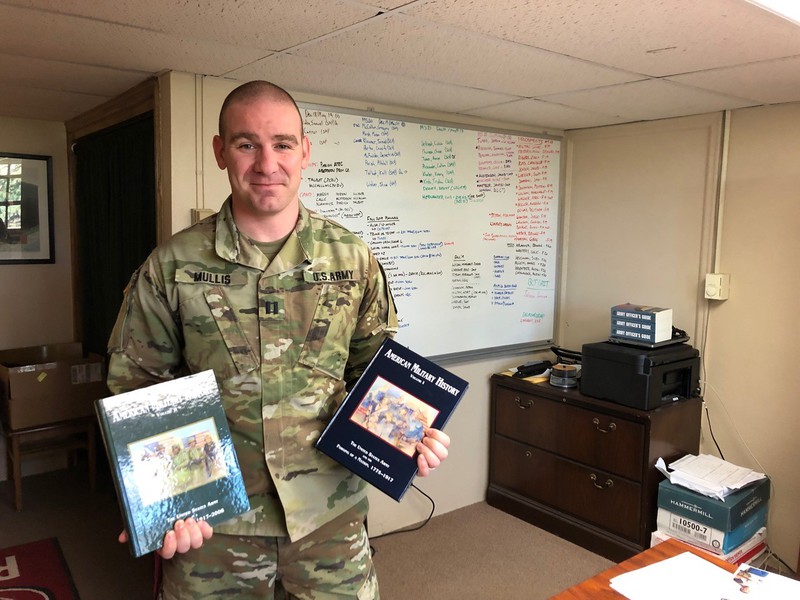Military Science and Leadership classes can benefit all CSC students

CHADRON – Although developing officers for the United States Army, National Guard, and Reserve is a primary aim of the Military Science and Leadership program at Chadron State College, the program has benefits for students who aren’t intent on a military job or career, according to Capt. Scot Mullis, the instructor for most of the MSL classes offered at CSC.
“Civilian (students) make up the majority of my courses,” Mullis said. “What they are trying to get out of the class is the leadership portion. They will learn tactics and other stuff, but what I want them to take away is the leadership side as professional development.”
CSC has offered students the opportunity to become part of the Reserve Officer Training Corps (ROTC) for more than a decade. Students can join ROTC as late as their junior years and upon graduation receive a commission as a Second Lieutenant provided they complete ROTC requirements and fulfill a Military Science and Leadership (MSL) minor.
While the ROTC program is affiliated with a battalion based at the South Dakota School of Mines & Technology in Rapid City, all of the course work required is available at CSC. At present, 18 CSC students are contracted with ROTC and another 10 students are taking courses with the intent of contracting in the program, Mullis said.
Military science courses have a specific focus, according to Mullis.
“Military Science is where you learn about tactics, you learn about company level operation orders, you learn about the nitty-gritty, day-to-day operations of the army in general,” he said.
Mullis began his military career with the Kansas Army National Guard in 2013 and transferred to the Nebraska Army National Guard in 2016. He commissioned as a Second Lieutenant in 2014 through the Federal Officer Candidate School in Fort Benning, Georgia, and has had multiple positions at the company and battalion level.
A graduate of the University of Missouri in Kansas City with a degree in history, he is currently working on a master’s degree in education at CSC.
Now part of the Nebraska National Guard’s Lincoln-based Recruiting and Retention unit, Mullis stressed the multiple advantages that come with becoming a ROTC cadet. Those benefits include scholarships that can cover all tuition and fees and even a monthly stipend while in college.
Joining ROTC early in a college career provides years of valuable training in leadership skills, noted Mullis.
“A mantra in the Army is ‘Leaders aren’t born, leaders are made,’” he said. “So you have four or five years to make yourself into a great leader.”
ROTC cadets have a choice of majors at CSC, but are required to complete the MSL minor, which gives them an opportunity to choose from a variety of career fields.
The curriculum to complete the MSL minor is progressive and standardized across the country. “It’s designed to teach you from your individual soldier level skills to what you are going to be doing at the battalion level,” Mullis said. “West Point teaches the same thing that these cadets are learning. It’s the same thing I learned at Officer Candidate School in Fort Benning.”
Students who complete ROTC requirements and graduate from CSC also have a guaranteed job, with either the U.S. Army, the National Guard, or the Army Reserve.
Joining ROTC comes with obligations, Mullis noted. Upon completing ROTC requirements, the individual commits to a total of eight years of military obligation, which could be four years active duty and four years of Individual Ready Reserve with the regular Army, or six years of National Guard or Army Reserve service, and two years of Individual Ready Reserve.
Those years of service bring benefits that carry over for those who don’t choose to pursue a career in the military.
“Those four years with an active duty component or six years with the National Guard and Reserve, that’s all job training and experience you can take with you to any other career field down the road,” Mullis said. “This generation of (ROTC) students are setting themselves up for future careers in ways that your standard student may not (be).”
Category: Campus News, Military Science Leadership
